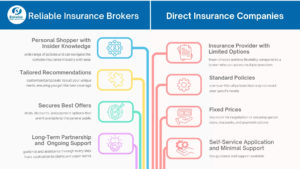This 2025, many Filipino families are still facing tough financial times. Even though inflation has slowed down to 1.8% as of March—the lowest since 2020—prices of basic goods and services are still high. The International Monetary Fund also lowered the country’s growth forecast to 5.5% because of problems in global trade. On top of that, the unemployment rate went up to 3.8% in February from 3.5% last year.
All these show that many Filipinos continue to deal with job uncertainty and higher living costs. In times like these, how can you protect your income and keep your family financially secure?
Why Insurance Matters More Than Ever Today
For many Filipinos, insurance has long been seen as something “extra”—a nice-to-have but not a necessity. It was often thought of as just health protection or something that provides for your family if you pass away.
But today, financial risks have changed. They affect more people and take many forms.
At its most basic, insurance—according to Investopedia—“is a contract, represented by a policy, in which a policyholder receives financial protection or reimbursement against losses from an insurance company.” Insurance companies absorb part or all of the costs of risks they are paid to cover. For example, health plans help with medical costs. Car insurance can pay for repairs or damages after an accident. Property insurance can cover repairs or rebuilding after calamities.
In simple terms, you are paying your insurer to carry the financial risks you would otherwise face alone.
But the risks today are bigger and more unpredictable. Even though inflation has slowed, the cost of goods and services remains high. Jobs are less stable. Emergencies—from health problems to natural disasters or accidents—can quickly drain years of savings or take a big portion of your income.
This is why insurance matters more than ever today. It’s not just about protecting your health, car, or home. It’s about protecting your income—because every time insurance covers a financial loss, it prevents you from having to spend your salary or savings. Whether it’s property, car, liability, health, or travel insurance, having the right coverage helps secure your income and protects your family’s financial stability.
In a way, you are paying your insurer to carry the financial risk of incidents of the policy or policies you take out with them.
Why Many Filipinos Still Avoid Insurance
While more Filipinos are now signing up for policies—with the insurance market’s net income growing 15.8% by late 2024—mistrust and misconceptions still stop many from getting the protection they need. This is especially true for non-life insurance, which grew by only 0.73% compared to life insurance’s 7.30%.
Here are some of the most common reasons why Filipinos avoid insurance—and why these beliefs can be risky:
- "Insurance is only for the rich."
Reality: Basic insurance products today are affordable and flexible. Whether it’s health, property, car, or accident insurance, many options are designed for working-class and middle-income families. Skipping coverage often leads to bigger expenses when emergencies happen. - "It’s better to just save money than spend on insurance."
Reality: Savings can easily be wiped out by one medical emergency, car accident, or natural disaster. Insurance exists so you don’t have to drain your savings—or go into debt—when life’s unexpected events occur. - "I don’t trust banks or insurance companies."
Reality: Licensed insurance providers in the Philippines are regulated by the Insurance Commission. Clients are protected by strict financial rules and consumer safeguards that informal saving methods (like piggy banks or “under the mattress” cash) can’t offer. - "Philhealth or government help is enough."
Reality: Philhealth can help, but claims can take time, and the coverage might not fully pay for hospital bills, treatments, or other expenses. Private insurance can fill the gap and give faster, more complete support during health emergencies. - "It’s too complicated."
Reality: Insurance brokers like Reliable Insurance Brokers can explain everything in simple terms and help you choose the right plan. You don’t have to figure it out alone.
Avoiding insurance may seem like a way to save money—but it can cost you far more when the unexpected happens.
How Insurance Can Protect Your Income
Here are some of the most common risks that can affect your finances—and how having the right insurance can help protect your income from these unexpected challenges.
Health and Medical Costs
Medical emergencies remain a major drain on financial resources. A single night’s stay in an average emergency room can run up a medical bill in the thousands. Doctors’ fees, medication and procedure costs, and other expenses can quickly pile up and put you in the red. Some leading risks include stroke, diseases like dengue and COVID, or injuries resulting from accidents.
Health policies and other HMO products play a key role in helping mitigate the financial impact of medical emergencies. Even basic plans allow you to prevent such incidents from happening with payment for regular checkups. You also will not have to delay going to an ER at the slightest sign of an emergency, as most health plans cover payment for such incidents.
Accident insurance policies, especially for work in hazardous situations, are a must so that your only concern during an incident is recovery, not the financial impact of medical care.
Many health policies also cover loss of income due to hospitalization or situations that prevent you from working due to the effects of a disease or health condition.
Damage to Home, Car, or Property
While traditionally more of a business need than a personal one, adverse climate challenges like a constantly high heat index or regular strong storms can put homes and other key personal property at risk. During Ondoy, so many cars were as much a casualty of the floods as were houses and people.
Several kinds of insurance policies can provide you with coverage for these risks. Basic property plans can cover damage or even total loss of property due to fire, flood, other calamities, or even theft. You can also choose additional coverage that protects against “Acts of God” events, such as natural disasters. Businesses may also get insurance to help cover losses if operations are interrupted.
Motor vehicle insurance also plays an important role. Whether it’s for your personal car or business vehicles, this coverage helps pay for repairs or damages caused by accidents, natural disasters, or theft. Without it, you could end up paying out of pocket—not only for repairs but also for injuries or damages caused to others, which can lead to major financial strain.
Property insurance helps cover repair or replacement costs after unexpected damage or loss, so you don’t have to rely on your income or savings to rebuild. This allows you to focus on restoring your home, car, or business—not worrying about how to afford the recovery.
Legal and Liability Expenses
While the Philippines is not as litigious a country as, say, America, there’s the possibility that accidents and other situations could lead to a lawsuit. Whether you are the plaintiff or accused, fees for such cases can be a quick and heavy drain on your personal finances.
While there are free legal resources like the Public Attorney’s Office (PAO) and the State assures your legal representation via your Miranda Rights, the best kind of legal assistance is paid. And it might be better to just pay damages or settle a suit rather than let it reach an actual trial that could be lengthy and costly.
This is where having the right liability insurance becomes essential. Policies such as general liability, professional liability, or even cyber liability can provide coverage for legal fees, settlements, or damages arising from a wide range of claims. Without this kind of protection, even a single legal issue could cause severe financial strain.
While some insurance plans—like car or property insurance—may offer limited liability coverage, they are not designed to fully cover the broader risks that dedicated liability insurance policies address.
Liability insurance gives you the financial support to manage legal and settlement costs so you can focus on resolving the issue, not worrying about how to pay for it.
Get the Right Insurance Plan for Your Needs
Life’s unexpected challenges—whether medical emergencies, property damage, or legal issues—can drain your income and savings in an instant. But with the right insurance, you can shield your finances and focus on what truly matters: your recovery, your family, and your future.
Insurance isn’t just about covering costs. It’s about protecting the income and financial stability you work so hard to build.
At Reliable Insurance Brokers, we’ll help you find the policy that fits your needs. Our specialists will take the time to understand your concerns and help you choose the right plan and coverage options.
Call us today and take the first step toward securing your income and your peace of mind—no matter what life brings.
Contact Information for Inquiries and Support
If you have any questions or need assistance with your insurance, feel free to reach out to us:
- Call: +63 2 8631 9285 to 86
- Mobile: +63 917 138 5120
- Email: info@reliable-insurance.ph
- Messenger: m.me/reliable.insurancebrokersph
Sources:
- Reuters (2025, March 11), US stock market loses $4 trillion in value as Trump plows ahead on tariffs.
- Live Now Fox (2025, April 23), 2025 layoffs: List of companies cutting jobs this year.
- Investopedia (2024, November 26), Insurance: Definition, How It Works, and Main Types of Policies.
- Insurance Business, (2025, February 1), Philippine insurance industry sees growth in premiums, income, assets.
- Businessworld (2025, March 25), Expanding financial access for every Filipino.
- Philippine Daily Inquirer (2024, March 14), The misperception of life insurance in the Philippines.










